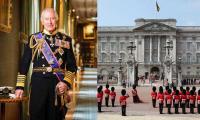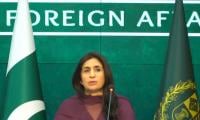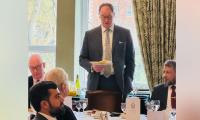Islamabad has been rather quiet after the elections, except in places where political battles are being waged or high-profile court cases are in progress. If you are looking for tabdeeli, it is in the faces not in the substance – not yet at least.
One has to admire the sangfroid of an average Pakistani when it comes to major changes like those underway in the National Assembly and the four provincial legislatures. Seen it all, done it already? No seriously, the country is witnessing the most important change since the early 1970s, but that will sink in slowly.
The last major comparable change happened in 1970 when Zulfikar Ali Bhutto’s PPP swept the polls in the western wing of the country. It ushered in a socio-political and economic upheaval with far-reaching consequences. Bhutto for instance, raised the minimum wage from Rs60 to Rs300 per month. Industrialists saw their profits plummet. The major industries were simply taken over without compensation and so on. Bhutto couldn’t deliver ‘roti, kapra aur makan’ but ordered issuance of passports to the working class to partake in the oil-sector boom in the Gulf.
The change we may witness under the Kaptaan does not look like Bhutto’s economic surgery, carried out without administering anaesthesia. Despite the PTI’s promises to end corrupt practices and bring in better governance, we hardly know what specific changes the party can bring in the short term. Imran went rather quiet after his astonishingly fair victory speech delivered the day after the polls.
The PTI leader could not have expected to be anywhere better than where he stands today, with the party enjoying unprecedented popularity across Pakistan – with the exception of Balochistan and interior Sindh. The wave of support he always aspired for is finally here. And he was greeted by good omens. In a remarkable turn of currency trading, the dollar retreated and the rupee advanced. The very idea that the new government will plug massive pilferage of national wealth may have convinced exporters and others holding dollars that it was a good time to sell. A modest beginning, noticed by all. The stock exchange picked up as well. Razzaq Dawood’s selection as economic adviser should have further stabilising impact on markets.
The nation awaits the new premier’s early actions in the centre, Punjab and Khyber Pakhtunkhwa, and possibly in Balochistan. One of the issues which need attention is the elitism and corporatism rampant in the state. It is evident in the deplorable state of public infrastructure in the domains of health and education. It has brought trends unheard of such as the villagers preferring to send their children to private schools instead of non-functioning government schools.
The public health system is in an equally disastrous situation. The way public facilities are neglected to benefit the private-sector, including private practice, has turned the entire health system into a huge racket. The apathy of public administrators in the fields of health and education mirrors what is prevalent in the federal, particularly in provincial, governments – power for pelf. A majority of civil servants are not content with their privileged positions in a poor country. They want to multiply their wealth through all kinds of fair or foul methods.
I have often criticised the Sharif brothers’ penchant for mega projects which has led to lopsided development, planting islets of splendour in a sea of neglect and inefficiency. We know how Punjab’s resources were largely spent in Lahore. Colossal amounts were pilfered in Sindh and Punjab through fraudulent banking transactions. Both the PPP and the PML-N have been patronising unparalleled webs of corruption.
The PPP is no longer a national party, but many ask how it has managed to win in Sindh for the third time running, and whether the winds of change will reach the province any time soon. It is a fact that the feudal system is deeply entrenched in Sindh. The PPP’s practice of winning votes through largesse is also at work. Thousands of jobs are distributed beyond the needs of the public sector. An entire class of dependents was developed through the Benazir Income Support Programme. These features notwithstanding, some voters defied feudal chiefs to vote for other candidates.
It will be hard to speed up reform in the two southern provinces. Karachi, despite its status of the major revenue contributor, will also continue to suffer from corruption and neglect. This raises the spectre of a two-speed Pakistan, accentuating the gap between the north and the south. There is not a great deal that the Kaptaan and his colleagues can do to bring the social transformation in parts under the influence of feudal lords and tribal chiefs.
There is something worrying about the demand for a separate province in southern Punjab. It is spearheaded by zamindars who are aiming for a greater share in the country’s resources, notably after devolution brought enormous funds to the provincial governments. A new province in the south will empower the elite rather than the masses. It will be a tragedy if the people there join the slow moving south rather than being given better governance more in line with KP and Punjab. Naya Pakistan is not free from the dilemmas of the old Pakistan.
Email: saeed.saeedk@gmail.com
A woman walks past a building of the International Monetary Fund. — AFP/FileThe annual and spring meetings of the...
Late Benazir Bhutto's daughter Asifa Bhutto Zardari addresses the Christian community in Bihar Colony on January 23,...
Representational image. — PexelsWater is an important scarce natural resource that is required for several everyday...
Pakistani employees of online marketplace company Kaymu at work in Karachi. — AFP/FileThe true spirit of development...
India uses Afghanistan as a backstage area to carry out terrorist attacks against Pakistan
Another report by the Pakistan Institute of Peace Studies states that 78 per cent of attacks have been carried out by...







